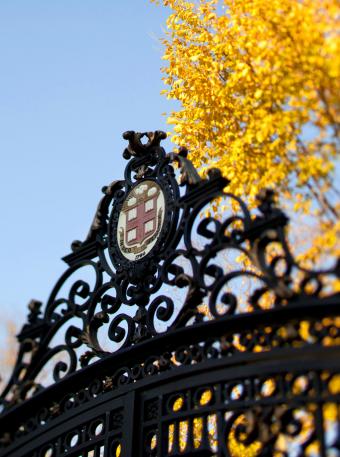Members of the Brown Community,
In November 2013, I established a committee of students, faculty and staff, chaired by Professor B. Anthony Bogues, to examine the events and circumstances surrounding the disruption of a lecture by then-New York City Police Commissioner Raymond Kelly by students and Providence and Rhode Island community members protesting the use of stop-and-frisk policing and racial profiling. This incident sparked often difficult discussions about critically important issues, including freedom of expression and the limits of protest; racism and the mistreatment of communities of color by police; and, ultimately, the kind of community we strive to be — issues with which the committee grappled in its work. I am grateful to Professor Bogues and the entire committee for the significant time and attention they devoted to carrying out their charge, which resulted in the February 2014 Phase One and the May 2014 Phase Two Reports.
I have had the opportunity to discuss the two reports with the committee, the Brown University Community Council and a number of students, faculty, alumni and staff. Since the October 29, 2013, incident, I have also received hundreds of letters and emails on the matter, and I have benefited from conversations with members of our community who care deeply about Brown, offering an array of perspectives. This process has helped shape my response to the committee’s reports. I hope you will take a moment to review the response, which is posted on the President’s Office website.
In short, my response reaffirms our commitment to freedom of expression, which is essential in fulfilling the University’s mission. Brown has sound policies that promote and preserve freedom of expression, even when the ideas being expressed may be abhorrent. These policies also protect the right to protest as a form of expression, as long as protest does not interfere with the rights of others to benefit from the free exchange of ideas. Members of our community are made aware of and agree to these standards and understand that there are ramifications for violations. We will continue to communicate and enforce these standards, which are essential to ensuring a lively, vibrant academic community dedicated to advancing knowledge. At the same time, we will work to ensure that all voices have an opportunity to be heard at Brown, and we will encourage event managers to recognize their role in sustaining a community of openness, trust and mutual respect.
The response also addresses the committee’s recommendations for Brown to cultivate a diverse and inclusive community while upholding our commitment to the free exchange of ideas. The committee report makes a compelling case that the “Kelly incident” exposed deep rifts in our society and on our campus, that trace their origins to the legacy of slavery and racial discrimination. The painful events of Ferguson, Missouri, this past summer underscore our shared responsibility to understand and address these rifts.
My response notes that while some of the committee’s recommendations will require faculty consideration to implement, and others will benefit from the involvement of the broader Brown and Providence communities, there are some steps we can take immediately. For example, the response outlines actions we will take to diversify the faculty and senior administration; build more support for our undergraduate and graduate students; develop and ensure oversight of a Diversity Action Plan; and enhance resources to support the Office of Institutional Diversity more effectively. I also note that the director of the OID, currently reporting to the provost, will report to the president. This restructuring, which will take place this fall, will position the office to support diversity across the campus more fully.
I expect the committee recommendations and my response will generate a great deal of discussion in the coming year on issues of power, privilege, equity, race and racism, and social justice. As I note at the conclusion of the response: “My hope for the University is that, given the policies and practices we have in place to protect the free exchange of idea, and with a renewed commitment to creating an inclusive campus, we will sustain a diverse community that fully reflects Brown’s core values.”
Sincerely,
Christina Paxson
President
Professor of Economics and Public Policy
Brown University

